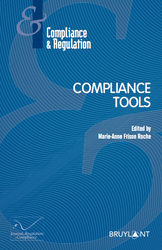MERABET, Samir
Morality by Design

Full reference : Merabet, S. La morale by design , in M.-A. (dir.), Compliance Tools, série "Régulations & Compliance", Journal of Regulation & Compliance and Bruylant, 2021, p. 307-318.
Consult an overview of the volume in which the article was published.
___
Summary of the article (by Marie-Anne Frison-Roche)
After having wondered about the relationship between Law and Morality, for which it is difficult to find points of contact, the author advances the hypothesis that the latter could find a space of concretization in the technology of artificial intelligence, even though many are worried about the deleterious effects of it. The author considering that Compliance is only a method while ethics would be the way in which morality is incorporated in a relaxed way in Law, the technology known as Artificial Intelligence could therefore express the moral rule ("compliance by design could be the appropriate tool to ensure the effectiveness of moral rules without falling into the excesses envisaged").
The author draws on examples to estimate that thus technology for on the one hand expressing the moral rule and on the other hand making it effective. The moral rule can thus be drawn up in a balanced way since it is jointly developed between the State and the economic operators, this collaboration taking the form of general principles adopted by the State using the means chosen by the company. Its content would also be characterized by the search for a "right balance", which would be found by this distribution between the primary moral principles whose expression would be the act of the State and the secondary moral principles whose expression would be delegated to companies.
Taking therefore what would be the principles of Compliance, the author applies them to Artificial Intelligence, showing that these technologies include not only the principle of neutrality but also the ethical principles of non-maliciousness, even of benevolence. (first principles) that companies then decline into secondary principles. Therefore, "compliance can usefully be used to convert these fundamental moral principles into derived moral rules, a source of greater effectiveness.".
Thus resulting in a "moral by design", the overall system has an additional effectiveness tool. This supposes that the fundamental and derived rules are of an acquired moral quality because for the moment the technological tool can only ensure their effectiveness and not the moral quality of the implemented rules. In determining the "moral rules of application", the company has margins of freedom, used through technological tools.
______________
.
Consult the summaries of the other articles composing the book.
____
comments are disabled for this article